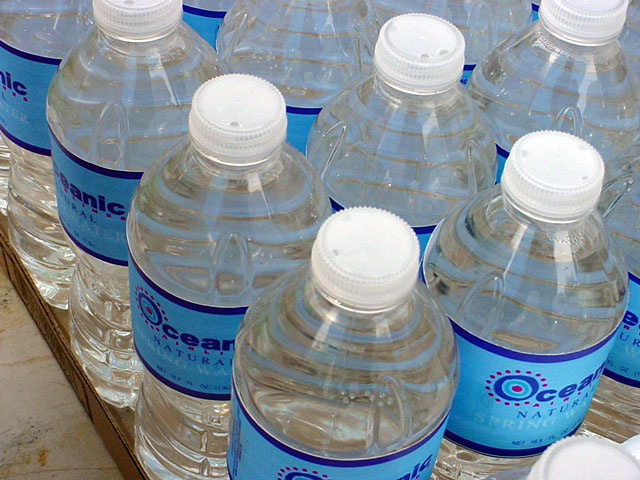Here’s a very popular question: So if we’re drinking enough, yet still feeling dehydrated, how can we ensure our bodies absorb more water?
We know that we have to drink enough watch each day (approx 1/2 your weight in ounces), but the amount of water you drink doesn’t matter as much as the amount of water you can absorb. You can drink lots of water, but if its mostly rushing though you body (besides the benefit of cleaning out your system), its not being used properly.
Body/Water Science
Water is absorbed into cells via minerals such as sodium and glucose. The basic process is: water is absorbed into the small intestine where it is pumped to the cells and, via active transport, to the extracellular space(this is simplified, but works for what we need to know right now). The water, containing traces of sodium that comes from the diet or created by the body, enters the cell and adds to the cell’s sodium levels. When the sodium enters the cell, it also brings in hundreds of water molecules(along with some glucose/sugar).
So what happens when we don’t have the right amounts of sodium and glucose in our bodies? Our cells don’t get enough water.
This is also the reason that people with diarrhea get dehydrated fast, since the body pumps out the intestines faster than the water/nutrients can be absorbed. In a healthy person, the majority of sodium found in the intestines is absorbed, keeping cells well hydrated. If the level of salt or glucose in your body is low, less water can be absorbed.
This being said, don’t start loading your food with table salt. Many foods come with natural salt in them, and many processed foods (even ‘fresh’ chicken breasts) come with added salt.
Beyond sickness, sodium is lost from the body via the skin and sweating. So the most important time to ensure your sodium levels are being increased is after a good workout or sports, which is why drinks like Gatorade contain sodium.
Drinking Water with Sodium
There is also a benefit from drinking water with some salt and sugar in it. Back in the 60s and 70s, a biochemist named Robert K. Crane discovered that the body’s cells used sodium and glucose for transporting water, and through that came the idea called “oral rehydration therapy”, which is a way to rehydrate severly dehydrated people without using an IV. Essentially medics can use water mixed with an appropriate amount of sodium(salt) and glucose(sugar) as a drink that will rehydrate a person faster than just water alone. This idea has supposedly saved millions over the further decades, in areas where medical equipment is less common.
Its almost impossible to measure the level of sodium in your body on a daily basis, so once you have a good balance (based on your personal observations of water retention and hydration), try to keep it maintained, especially if you’re an active person.
How to Absorb More Water?
So, back to the original question, there are two main groups of thoughts here.
First is to ensure you have enough salt in your body. Though over-consumption of salt isn’t good, not having enough is bad as well. People who play a lot of cardio-heavy sports, or do a lot of running, lose a lot of salt via sweat, and it needs to be gained back. Salt is used in the body to retain water in cells, along with helping get nutrients from the small intestine, and if we don’t have enough salt in the body, your cells can’t retain enough water. This causes the cells to dehydrate.
Drinks like Gatorade
The second idea to ensure we keep enough water in the body, is to eat fibrous foods. Fiber in foods will help your body retain water in the intestines, where it is slowly absorbed. This means that instead of just passing through fast, it’ll take its time and your body can use all the water it can.
Some good examples of fibrous foods are berries or legumes. There are a large number of Books on Cooking with More Fiber
But just a note, when you increase the amount of fiber in your diet, you should increase the amount of water you drink as well, to avoid constipation. Though, this whole process will allow more water to be retained in the body, keeping you more hydrated.
Hopefully this helps!
